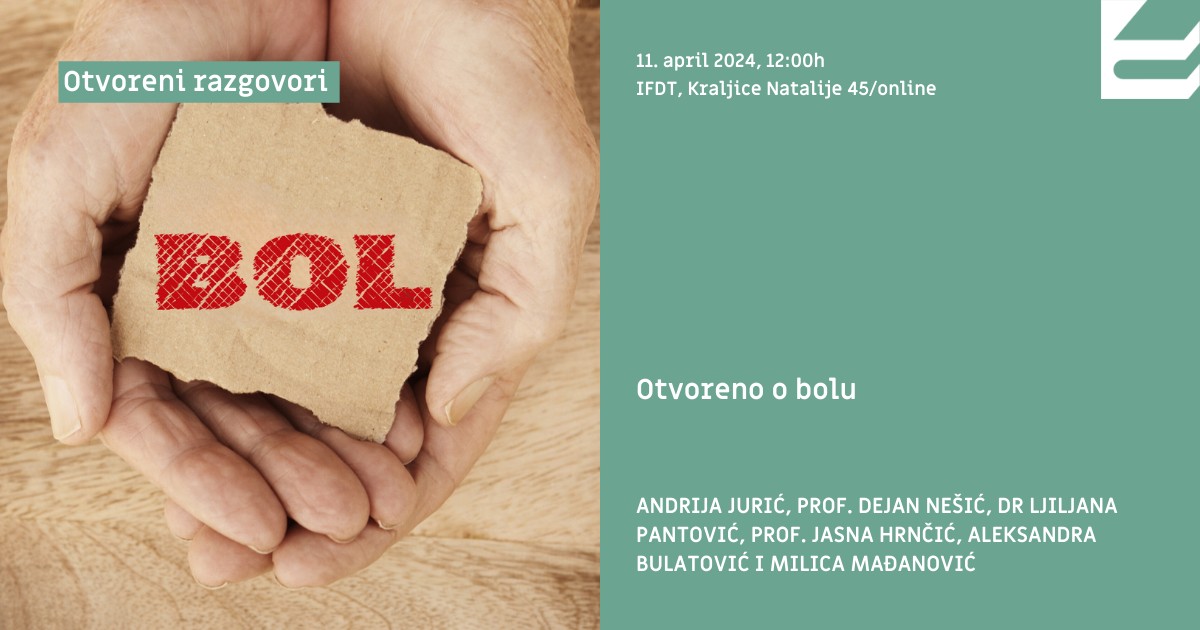
[ROUND TABLE] Openly about pain (SolidCare)
Pain is a universal human experience. All facts about pain, including its definition and classification, are created within social institutions. Although pain is a deeply subjective experience, social conditions shape the causes of pain, its psychological, social and financial consequences, and the very experience of pain itself.
The currently prevailing biomedical model of pain ignores the role of structural inequalities that shape who experiences pain, how it is experienced, and how others view their pain as well as the fundamental driving factors such as public policy, the medical-industrial complex, including the pharmaceutical industry and the health insurance industry, and the socio-political context underlying all these factors and their interrelationships. Pain is a sensitive
“barometer of people’s health and well-being.” In order to recognize pain as a phenomenon which affects individual and social outcomes, it is necessary to understand how a wide range of actors and structures shape the experience of pain and pain management together. Since pain is at the center of the conceptualization of suffering, morality and social welfare in the context of health and social care, it is thus positioned as a political issue of great importance.
The roundtable discussion Openly about pain organized by the Solid Care Laboratory of the Institute for Philosophy and Social Theory seeks to start a dialogue about the meaning, framework and consequences of pain both for individuals and for society. Individuals’ subjective experiences of pain and of social pain, such as social exclusion or discrimination, are necessary to explore the relationship between the individual psyche and society. Pain
elicits behavioral and attitudinal responses learned by individuals suffering from pain within the cultures in which they are socialized. The feeling that one’s pain is understood and acknowledged by others is the basis for the ability to cope with it and the existence of social support paves the way to a different experience with pain. In light of this, we want to re-examine our deep-rooted intuitions and notions about pain by discussing the health and social consequences of pain, how pain reflects existing structural inequalities and how it is related to multiple dimensions of physical and mental health as well as well-being, and how pain affects the whole family, the workplace and other social structures in which the person who feels pain is embedded.
Participants:
Andrija Jurić, doktorand, Filozofski fakultet u Novom Sadu
prof. Dejan Nešić, Medicinski fakultet, Univerzitet u Beogradu, šef katedre na predmetu Medicina bola
dr Ljiljana Pantović, Institut za filozofiju i društvenu teoriju, Univerzitet u Beogradu
prof. Jasna Hrnčić, Fakultet političkih nauka, Univerzitet u Beogradu, šefica katedre na odeljenju za socijalnu politiku i socijalni rad
Moderators:
Aleksandra Bulatović
Milica Mađanović
